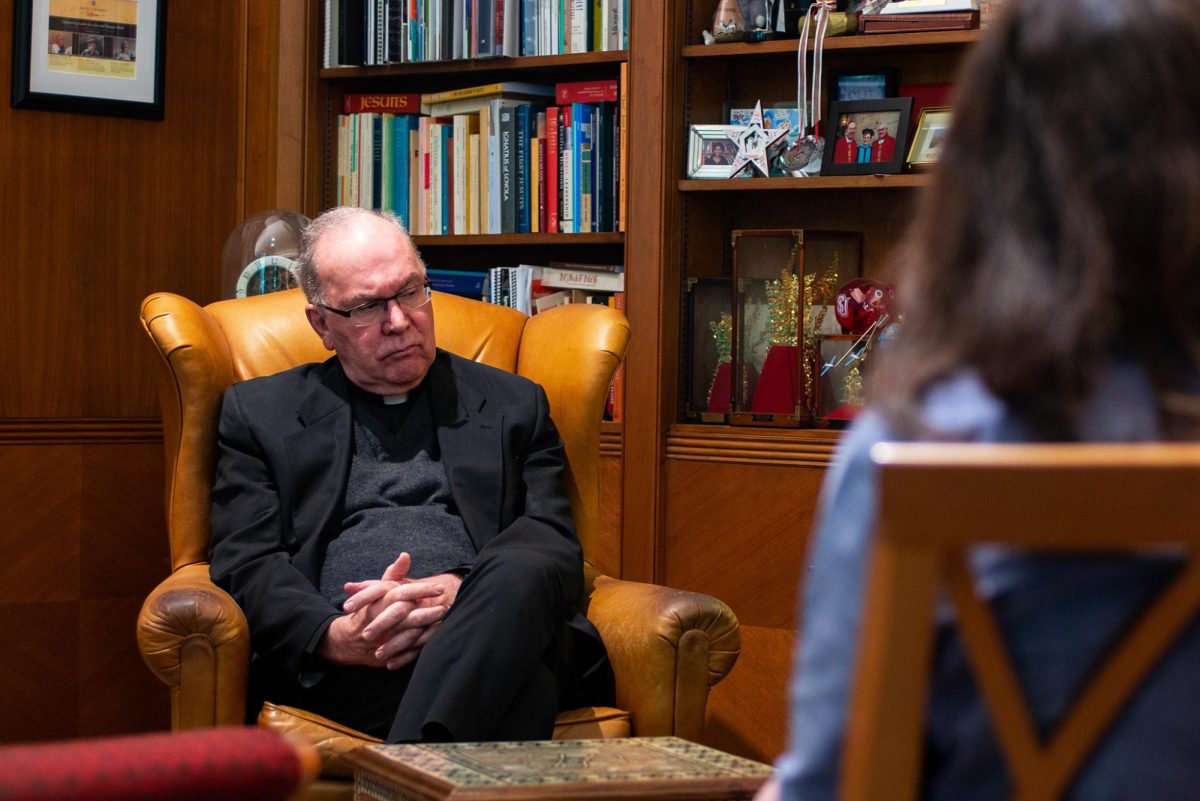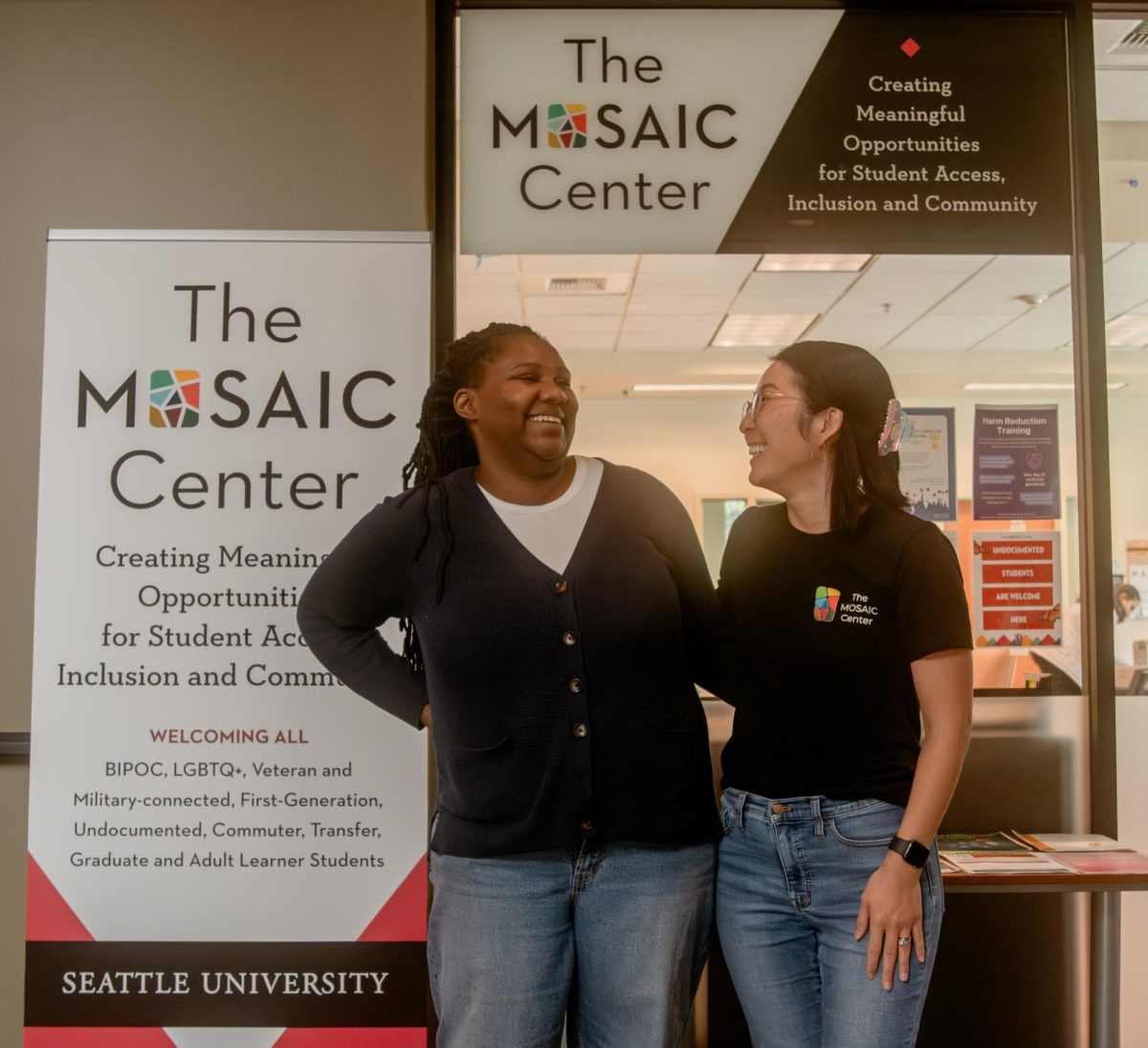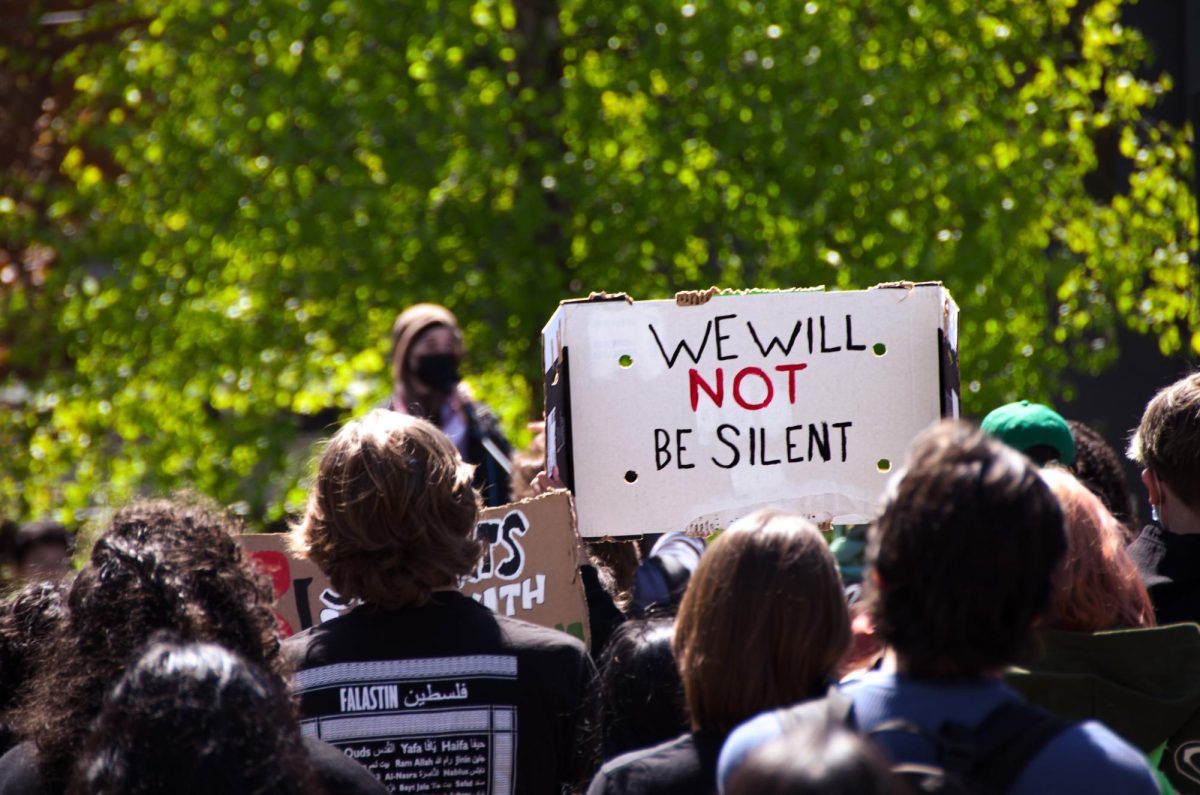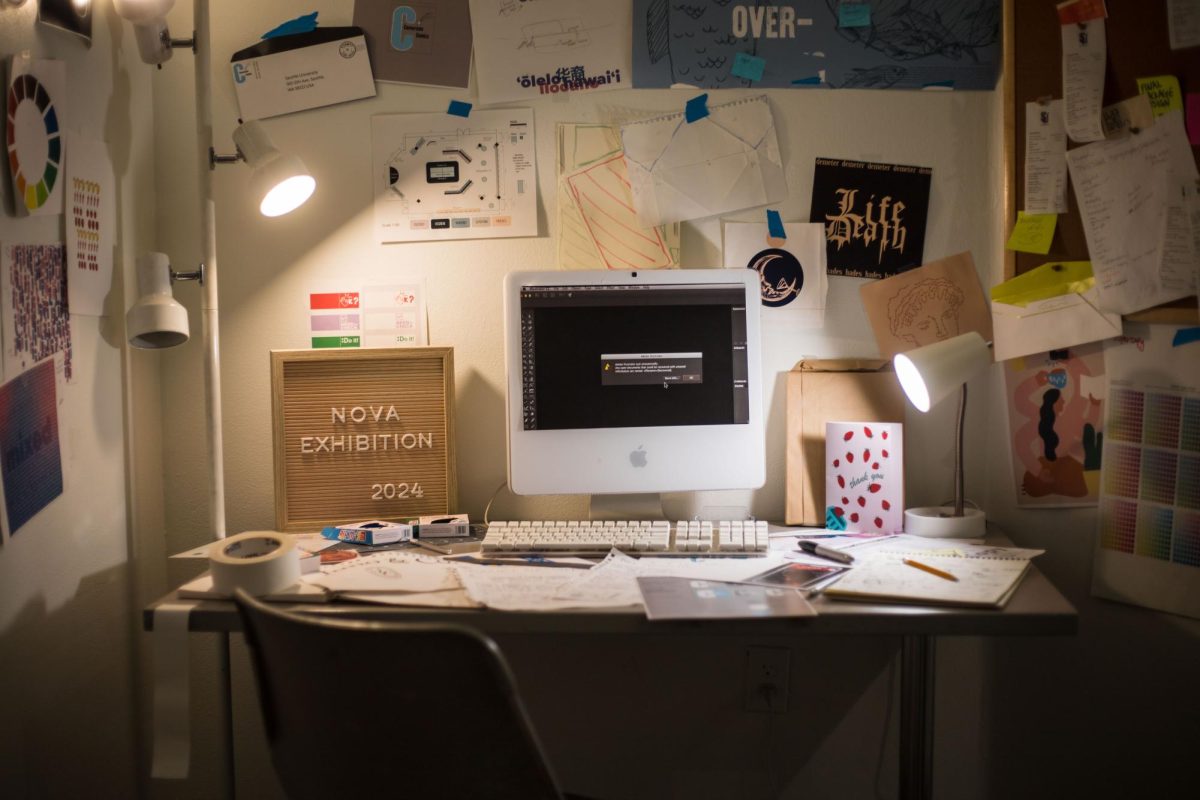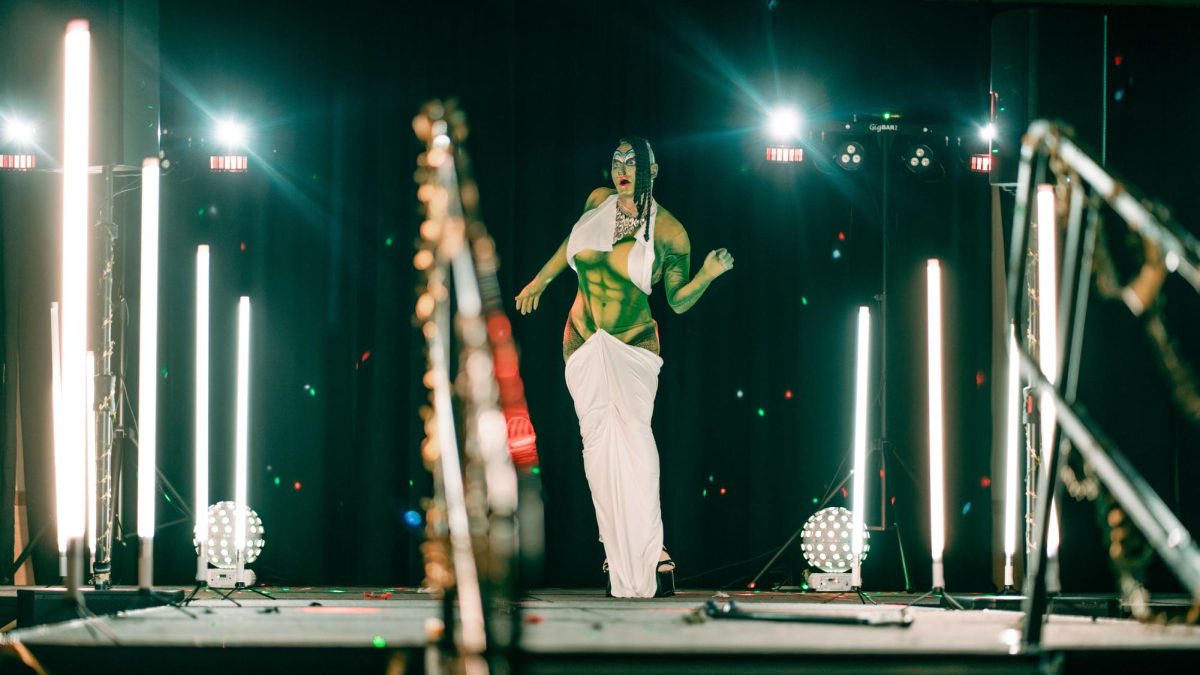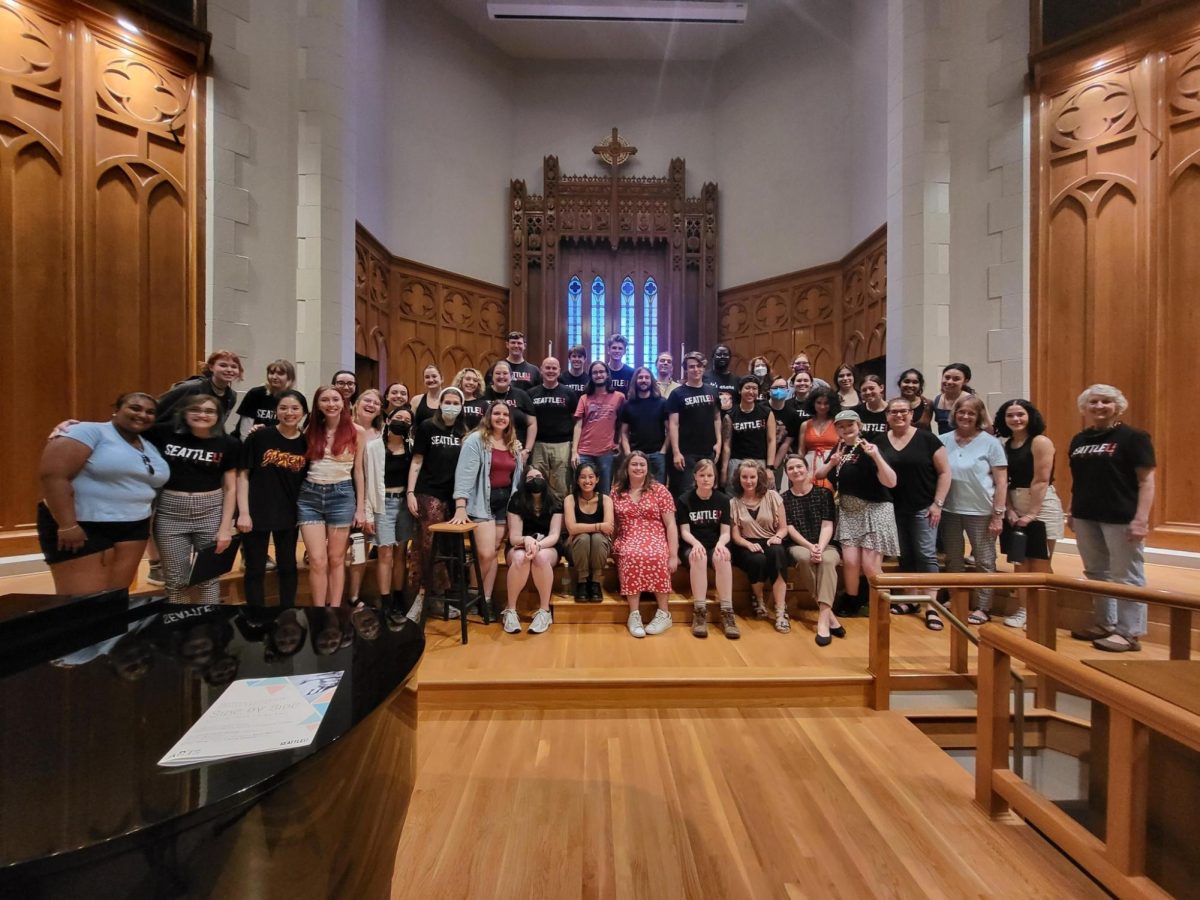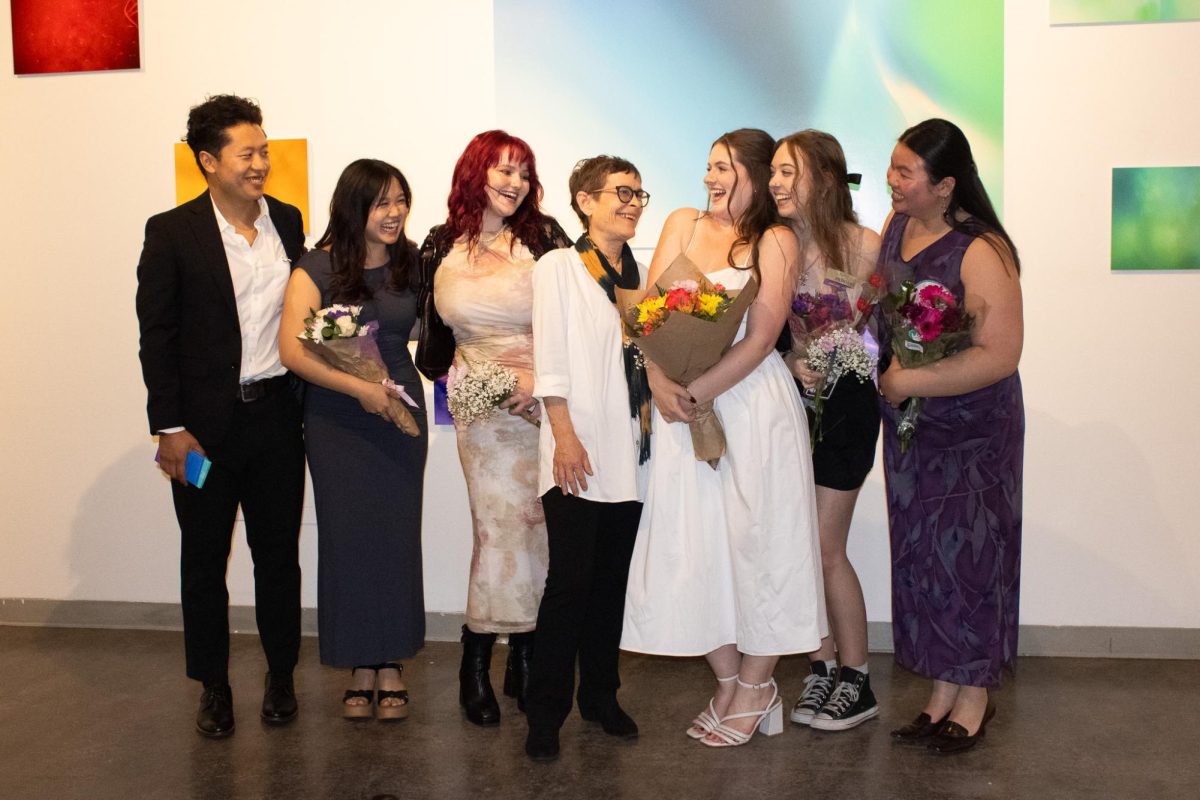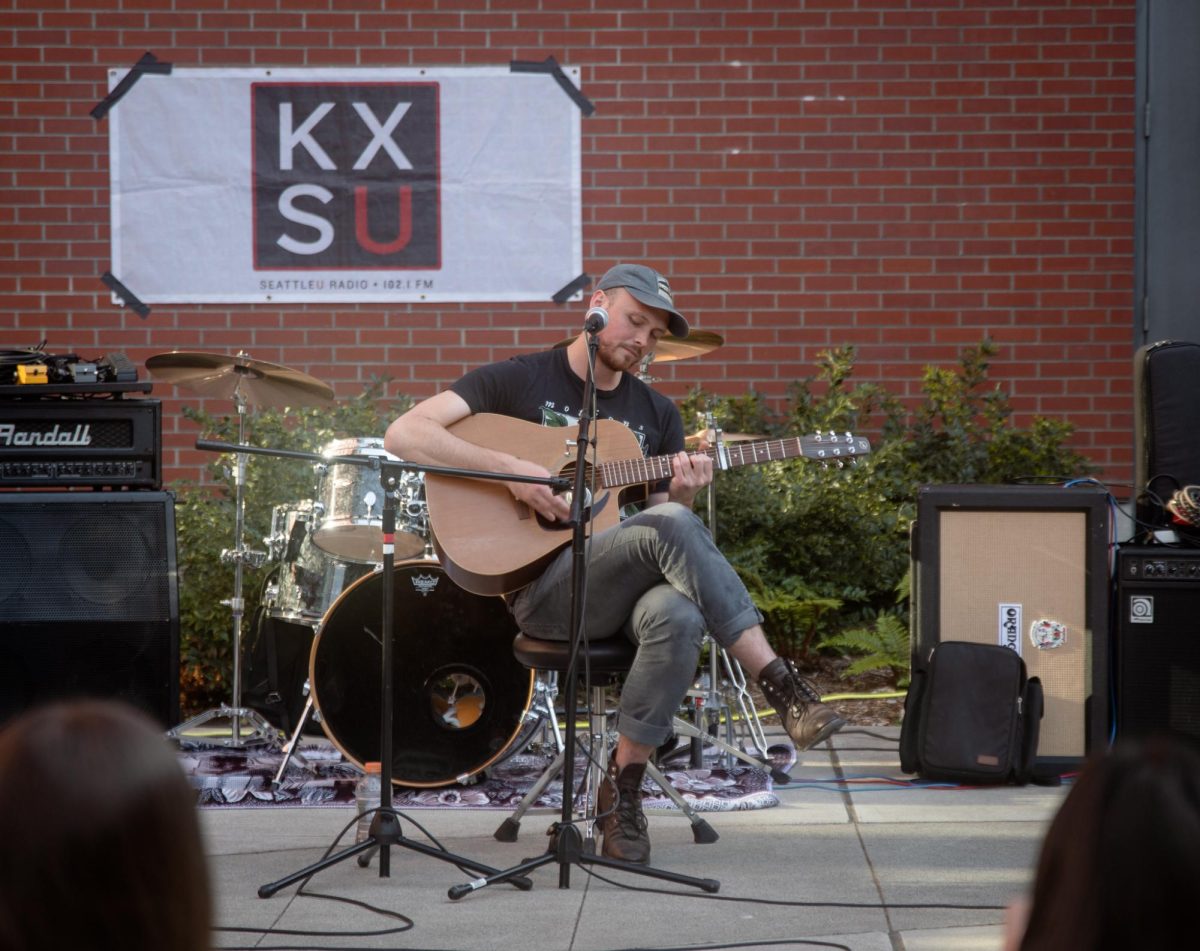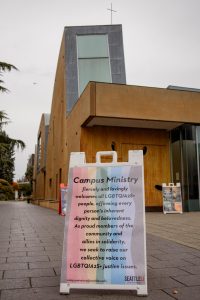
One’s spirituality and sexuality are two deeply personal aspects of personhood that can evolve throughout their lifetime. For students at Seattle University who seek to explore their own identities as they enter adulthood, finding community on campus can be both a source of security and comfort.
However, some students can often feel that their queerness and spirituality are incompatible traits or that one must be subdued in order to properly explore the other. This contradiction is emboldened by the fact that about half of LGBTQ+ individuals in the United States identify as moderately or highly religious, according to a study from UCLA.
Anabella Vucci, a third-year public affairs and women, gender, & sexuality studies major, grew up in Christianity, and commented on her hesitance to talk about sexuality in religious spaces after seeing the lack of acceptance afforded to a lesbian couple at her childhood church.
“I am straight-passing so I’ve never had to water down my queerness in religious spaces, I’ve just had to not mention I was queer,” Vucci said.
Rose Lindsey, a third-year creative writing major, grew up in a household where the Christian faith was accepting of those with queer identities, and has found the two to coexist peacefully within the context of their home life.
“I never felt tension between a relationship to God and being queer,” Lindsey said. “Though I wouldn’t identify as religious in the current day, my younger self never doubted that a God could still love those who are queer—He loved my lesbian parents and their Christian lesbian friends, after all.”
Seattle U’s Jesuit foundation may intimidate students who have had negative encounters with the Church in the past, leaving them hesitant to openly express themselves. However, for students like Third-year English Major Trent Haynes who initially felt closed off from religion, Seattle U’s relationship to spirituality has been welcoming and supportive.
“I really appreciate that one of the safest spaces on campus for queer people is also campus ministry, and that I know so many queer people who are faculty and students at campus ministry,” Haynes said. “That definitely opened up in my mind to the possibility that someone could be queer and spiritual.”
Haynes feels that institutions and groups on campus that are not exclusive to religious students nonetheless have a special connection to spirituality. One such space is the New Student Retreat, offered annually by Campus Ministry, which provides an opportunity for first-year and transfer students to build community as the academic year begins.
“Campus Ministry is such a foundation for so many campus events… they play so many roles on campus,” Haynes said.
Haynes is also the president of the EcoSangha Zen Community on campus. He feels that there are a multitude of spiritualities and religions represented through campus groups which he has been able to interact with in his time at Seattle U.
“This potential for spiritual spaces to be reclaimed is really beautiful, and I see there’s a lot of that on campus. There are queer spiritual people and they’re finding what that means for them,” Haynes said.
Some students on campus also seek out and work to create spaces for their queer and religious identities to interact in positive and meaningful ways. One such group founded the club Queerly Spiritual. Meeting every other Wednesday from 6:30–7:30 p.m. in the Gender Justice Center, the club welcomes all LGBTQ+ students from all sects and degrees of spirituality.
Al Partington, a second-year English and theology & religious studies student, views Queerly Spiritual as a safe space to remedy the tension felt by students at the intersection of sexuality and spirituality. Partington hopes that the club’s new presence on campus presents an opportunity for students to join others with varying experiences to explore both collective and individual identities.
Raymond Carr, a third-year film studies major, spoke to the importance of spaces like Queerly Spiritual, having experienced societal stigma around their intersectional identity.
“It’s so important that we have intentional, safe spaces for students to build community with other people who are both queer and spiritual, because there are a lot more of us than I think most people realize,” Carr said.
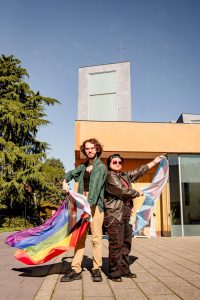
Carr has seen the beauty of these safe spaces both on and off campus, seeing progress in the acceptance and encouragement of historically “unorthodox” religious practices.
“One thing I love about Seattle is being able to see some spaces for organized religions become more accepting of queer identities. For example, there are parishes who allow non-men to preach to the congregation, or one of the female rabbis at a Shabbat service I attended and her non-binary child whom she proudly honors,” Carr said.
Identity, being an inextricably nuanced concept, can manifest itself in endlessly varying ways. While community and shared spaces can help students feel supported, many such as Partington do so in tandem with an inner personal journey. Having done introspective work into their own identity, Partington is looking forward to using their experience to assist in leading others.
“As a transmasc/nonbinary, AFAB, Chinese adoptee, I think I tend to focus a lot of my energy and spiritual practices around coming home to myself and my body,” Partington wrote to The Spectator. “I’ve found that I can serve others best when I am in tune with myself first.”
While exploring one’s identity can be hindered by close-mindedness, the blossoming of personal expression can sometimes be inadvertently catalyzed by a lack of acceptance. In Carr’s case, they discovered more and more about themselves after leaving a Christian youth group that promoted anti-LGBTQ+ rhetoric.
“I felt like I had to choose one or the other. So I chose my newly-forming queer identity and had a hard time bridging the two things for many years,” Carr said. “Now I have crafted my own personal spirituality that celebrates all of my identities and sees them as sacred and divine.”
For Lindsey, the more solidified they became in their queerness, the more spiritual they began to feel; their relationship with the universe strengthened alongside their relationship with themself.
“The more I allow myself to exist as a queer individual, the more connection I’ve felt towards the energy I place out into the universe,” Lindsey stated. “Being queer and experiencing wholehearted queerness… that’s a spiritual experience in and of itself.”
While many students advocate for the existence of spaces to experience spirituality and queerness, this sense of community and acknowledgement isn’t inherently exclusive to clubs.
Partington believes that creating a wider awareness of the existence of queer, spiritual students is imperative to expanding the breadth of allyship, both generally and on Seattle U’s campus.
“One way students can be better allies is unlearning the harmful narrative that you can’t be religious and queer, as well as getting rid of the notion that no religious person can be an ally,” Partington said.
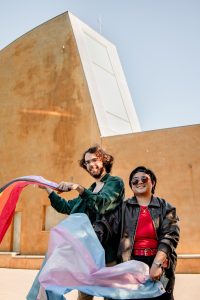
Similarly to Partington, Carr expressed that part of engaging thoughtfully with other students on campus is not assuming that someone can only feel connected to one or the other identity.
“Students can be better allies … by engaging thoughtfully in their day to day lives, without assuming that because one student identifies openly [as queer or spiritual] that they couldn’t identify with the other as well,” Carr stated.
Identity is ever-evolving. Societal conversations on different facets of personhood are consistently reshaped by time and discourse; one’s own experience of personal identity can be affected just the same.
As students continue to openly identify themselves as both spiritual and queer, it is the evolution of preconceived notions on what identities can and cannot coexist that will impact the manner in which they interact with themselves and others.
“Everyone should feel permitted to experience the world beyond themselves, in whatever way feels right and true, including the queer truths,” Lindsey said.






